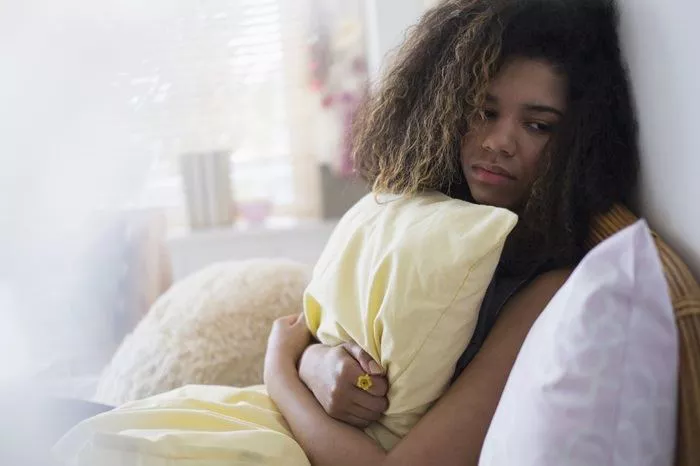Social media has become an integral part of daily life for millions of people worldwide. Platforms like Facebook, Instagram, Twitter, and TikTok offer unprecedented opportunities for connection, self-expression, and information sharing. However, the pervasive use of social media has also raised concerns about its impact on mental health, particularly among women. This article delves into the various ways social media affects women’s mental health, examining both the positive and negative aspects, and offering insights into how women can navigate these platforms to protect their well-being.
Understanding Social Media Usage Among Women
Demographics and Usage Patterns
Women are prolific users of social media, often engaging more frequently and with different motivations compared to men. Studies have shown that women are more likely to use social media for social interaction, emotional support, and community building. This high level of engagement can have significant implications for their mental health.
Frequency of Use: Women, especially younger women, tend to spend more time on social media platforms daily.
Types of Platforms: Preferences vary, with platforms like Instagram, Pinterest, and Facebook being particularly popular among women.
Motivations: Women often use social media to maintain relationships, seek social support, and engage with content related to beauty, fashion, and lifestyle.
Cultural and Social Influences
Cultural and societal norms heavily influence how women interact with social media. The portrayal of gender roles, body image, and beauty standards can shape women’s experiences and perceptions on these platforms.
Representation: Media representations often emphasize certain beauty ideals and lifestyles, influencing how women perceive themselves and others.
Peer Influence: The behavior and attitudes of peers on social media can affect women’s self-esteem and mental health.
Positive Effects of Social Media on Women’s Mental Health
Social Support and Community Building
One of the most significant benefits of social media is the ability to connect with others and build supportive communities.
Emotional Support: Women can find emotional support from friends, family, and even strangers, which can be crucial during difficult times.
Shared Experiences: Social media allows women to share their experiences and find solidarity with others facing similar challenges, such as motherhood, career struggles, or health issues.
Empowerment and Advocacy
Social media can be a powerful tool for empowerment and advocacy, giving women a platform to voice their opinions and fight for their rights.
Campaigns and Movements: Platforms have been instrumental in organizing and spreading awareness about important issues such as gender equality, sexual harassment, and body positivity.
Role Models and Inspiration: Following inspirational figures and role models on social media can motivate women to pursue their goals and aspirations.
Access to Information and Resources
The internet provides a wealth of information that can be beneficial for women’s mental health and well-being.
Health Information: Women can access reliable information about mental health, physical health, and wellness.
Educational Content: Social media can be a source of educational content that empowers women with knowledge and skills.
Negative Effects of Social Media on Women’s Mental Health
Body Image and Self-Esteem Issues
One of the most discussed negative impacts of social media on women’s mental health is its effect on body image and self-esteem.
Comparison Culture: Social media often encourages comparison with others, which can lead to feelings of inadequacy and low self-esteem.
Unrealistic Standards: The prevalence of edited and curated images promotes unrealistic beauty standards that are difficult, if not impossible, to achieve.
Body Dysmorphia: Continuous exposure to idealized body types can contribute to body dysmorphic disorder and other related issues.
Cyberbullying and Harassment
Social media can be a breeding ground for cyberbullying and harassment, which can severely affect mental health.
Anonymity and Aggression: The anonymity of social media can embolden individuals to engage in bullying and harassment.
Impact on Mental Health: Victims of cyberbullying often experience anxiety, depression, and a sense of isolation.
Addiction and Time Management Issues
Excessive use of social media can lead to addiction and negatively impact time management and productivity.
Screen Time: High amounts of screen time can interfere with sleep patterns, physical activity, and face-to-face interactions.
Productivity: Social media can be a significant distraction, leading to procrastination and decreased productivity.
FOMO and Anxiety
The Fear of Missing Out (FOMO) is a phenomenon exacerbated by social media, leading to increased anxiety and dissatisfaction.
Constant Updates: The continuous stream of updates and notifications can create a sense of urgency and anxiety about missing out on important events or trends.
Social Comparison: Seeing others’ highlight reels can lead to feelings of envy and inadequacy.
Strategies to Mitigate Negative Effects
Mindful Social Media Use
Practicing mindfulness in social media use can help mitigate its negative effects on mental health.
Set Boundaries: Establish clear boundaries for social media use, such as limiting screen time and designating specific times for checking social media.
Be Selective: Curate your social media feed to include content that is uplifting and supportive, and unfollow accounts that negatively impact your mental health.
Promoting Positive Content
Engaging with and promoting positive content can create a healthier social media environment.
Positive Interactions: Encourage positive interactions and support others in your network.
Share Authentic Content: Post authentic and relatable content rather than curated perfection to foster a sense of realism and relatability.
Seeking Professional Help
If social media use is significantly impacting your mental health, seeking professional help is essential.
Therapy and Counseling: Mental health professionals can provide strategies to cope with the negative impacts of social media.
Support Groups: Joining support groups, either online or offline, can provide additional support and understanding.
Digital Detoxes
Taking breaks from social media can be beneficial for mental health.
Scheduled Breaks: Plan regular digital detoxes where you disconnect from social media for a set period.
Alternative Activities: Engage in activities that do not involve screens, such as reading, exercising, or spending time in nature.
Research and Studies on Social Media and Women’s Mental Health
Empirical Evidence
Numerous studies have investigated the impact of social media on women’s mental health, providing empirical evidence of both its positive and negative effects.
Body Image Studies: Research consistently shows a correlation between social media use and body image dissatisfaction among women.
Mental Health Surveys: Surveys and longitudinal studies indicate that heavy social media use is associated with higher levels of anxiety, depression, and stress.
Case Studies
Examining case studies of individuals or specific demographics can provide deeper insights into how social media affects women’s mental health.
Adolescents and Young Adults: Case studies often focus on younger women, who are particularly vulnerable to the impacts of social media.
Professional Women: Exploring the experiences of professional women can reveal how social media influences work-life balance and career-related stress.
Future Directions and Recommendations
Developing Healthier Platforms
Social media platforms themselves can take steps to promote healthier usage patterns and mitigate negative effects.
Algorithm Changes: Adjusting algorithms to prioritize positive content and reduce exposure to harmful material.
Mental Health Features: Incorporating features that promote mental health, such as reminders to take breaks and resources for support.
Educational Initiatives
Educating users about the potential impacts of social media and promoting digital literacy can empower women to use these platforms more responsibly.
School Programs: Integrating social media education into school curricula to teach young women about responsible use and coping strategies.
Public Campaigns: Launching public campaigns to raise awareness about the mental health impacts of social media.
Ongoing Research
Continued research into the effects of social media on women’s mental health is essential to develop effective interventions and support systems.
Longitudinal Studies: Conducting long-term studies to understand the evolving impact of social media over time.
Diverse Populations: Expanding research to include diverse populations to understand the varied impacts across different demographics.
Conclusion
Social media is a powerful tool that shapes the lives of millions of women worldwide. While it offers numerous benefits, including social support, empowerment, and access to information, it also poses significant risks to mental health, particularly concerning body image, cyberbullying, and addiction. By understanding these impacts and adopting strategies for mindful use, women can harness the positive aspects of social media while mitigating its negative effects. Ongoing research, education, and platform improvements are crucial to creating a healthier digital environment that supports the mental well-being of all users.
[inline_related_posts title=”You Might Be Interested In” title_align=”left” style=”list” number=”6″ align=”none” ids=”8694,8690,8634″ by=”categories” orderby=”rand” order=”DESC” hide_thumb=”no” thumb_right=”no” views=”no” date=”yes” grid_columns=”2″ post_type=”” tax=””]

































